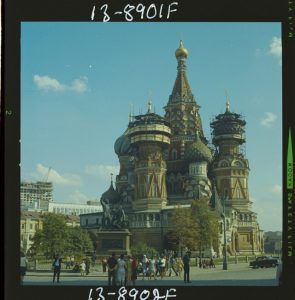by Fred Russell
4 January 2015
In May 1726 Voltaire sailed up the Thames, London-bound. He was thirty-two at the time, a scrawny Frenchman with a big mouth. Everyone was after his ass. Back in France he’d had a run-in with someone called the Chevalier de Rohan-Chabot, got himself arrested, and was graciously allowed to leave the country in lieu of becoming a full-time resident of the Bastille. It was a fine day and it made him fall in love with England. The King was out on his barge, a thousand little boats were in his wake, and some music was being played. Was it Handel’s “Water Music”? Let’s say it was so that you can understand what Voltaire felt that day. Later he saw some fat merchants in town and thought he was in paradise.
London at the time was in actual fact the cesspool of the Western World, a great Broth of Slops and Excrement to which the majority of its unfortunate Citizens had been consigned by the titled Nonentities who callously ruled their lives. Few civilized nations have displayed such cruelty toward their own kind as the British. But that’s another story. Voltaire retired to Wandsworth for a few months to brush up on his English so that he could chat with Pope, who usually talked in couplets. He also met Congreve, who he thought was the second coming of Molière. George II sent him some cash and he dedicated the Henriade to the Queen.
At Wandsworth he walked around with a big hard-on most of the time, coming down to the kitchen every morning to feast his eyes on the merry wenches dishing out the gooseberry tarts. Fawkener, his host, liked to pinch their lovely behinds. The English were still a robust people. Samuel Johnson had not yet begun to destroy their language so most of them still sounded like Shakespeare, or at least like Samuel Pepys. Voltaire sounded like Voltaire. He tended to philosophize about everything. Were he alive today he would be hosting a talk show like Reich-Ranicki or Bernard Pivot. But then he wouldn’t have written the ten thousand letters and all those books.
Once he got the hang of it, Voltaire started writing letters in English too. Whether the French recipients could understand them is another matter. To Thierriot he wrote: “Write me some lines in English to show your improvement in your learning.” To the Queen of England he signed off: “Most humble, most dutiful, most obliged servant,” but left out the “etc.” Voltaire was a lover of non-French royalty. That would get him into a lot of trouble in later life when he became enamored of the crazy Germans. But that’s another story too.
One morning, at Wandsworth, sitting in the garden and trying to render Ovid’s Ars Amatoria into English hexameters with little success, he saw one of the wenches walking toward the stables. “Hey there, marry wench,” he called out in the manner of Fawkener, “where beest zou off to?” The wench turned around and said, “Come along then, little man, and I’ll show you a thing or two.”
“What ho!” Voltaire exclaimed, not believing his good fortune. He got up so fast that he tipped over his inkpot and got a nasty stain on his britches. “Merde,” he said and trotted after her.
She was waiting just inside the stable. He embraced her passionately, whispering words like “ma petite” and “ma jolie,” but getting his bony fingers entangled in her many skirts when he tried to slip them between her legs. “Merde!” he said again.
“Come on then,” the wench said impatiently. “I haven’t got all day.”
“I shall tup zee presently,” Voltaire replied. Finally he mounted her and it was over in the twinkling of an eye, for the little man screwed the way he wrote, at breakneck speed.
“That’s no way to diddle a lady,” the wench complained.
“Zou aint no lady,” Voltaire rejoined, and got a smart slap in the face for his trouble.
Afterwards he went back to the house for a snack. Country life was making him soft and lazy. It was definitely time to move on, so a few days later he bid farewell to Fawkener and took the coach to London, dragging along a trunk filled with manuscripts and dirty underwear. As luck would have it, he found himself seated beside another comely wench, though this one too was far from being a lady. He had been reading Moll Flanders and thought immediately of the adventures they might have.
“I say, buxom miss, art zou traveling alone?” the little gentleman inquired.
“Anyone can see that,” the wench replied. “Would you care to join me then?”
The vicar sitting opposite the pair eyed them disapprovingly though he had a hard-on too. Voltaire winked at him and squeezed the wench’s thigh.
“That’ll cost you a pretty penny,” she said with a mirthless laugh.
“We’ll see about zat,” Voltaire said.
Upon arriving, the little man escorted the wench to her lodgings in Swinetown and then found lodgings of his own, promising to visit her soon.
The historic meeting between Voltaire and Pope took place a few evenings later, in a brothel of all places. Pope came to watch. He had a peephole with his name above it and paid for it by the month. Voltaire stood beside him and tried to strike up a conversation but the renowned poet waved him away, saying only: “Get a load o’ them boobs, my boy/That’s the biggest pair this side of Pomeroy.”
“May I have a peep zen?” Voltaire said.
“Peep away,” Pope replied.
“Sacré Dieu!” Voltaire exclaimed.
“You took the words right out of my mouth,” Pope rejoined.
Afterwards they had something to drink at the busy coffee house on Cockspur Street. Pope was grotesquely deformed and wore a powdered wig. From time to time he picked his nose and stared at the result. Sometimes he belched and occasionally he farted. Voltaire, who was no great prize himself, had never in his life encountered such a disgusting creature. They made some small talk. Voltaire asked him about the Marchioness of Fressing. Pope said, “I banged her once or twice/but got infested with her lice,” to which Voltaire replied: “Si Dieu n’existait pas, il faudrait l’inventer.”
After he was through with Pope and feeling good and horny he looked up the wench in Swinetown, who gave him a discount the second time around. “Come again,” she said. “I’m afraid I can’t,” Voltaire replied, misunderstanding her intent.
Voltaire waded through the slops and reached his quarters at two in the morning. The stench in the streets was horrendous. The sounds of the night intruded on his philosophical thoughts as he twisted and turned in his lumpy bed: screams and shouts and awful retching sounds as the patrons of the taverns and alehouses emptied their stomachs of the foul liquids and gasses and tainted meats that had lain there all evening. Then came the clop-clop-clop of a coach carrying another of the Nonentities to his palatial home and mad laughter from the loony bin down the road. The noise was enough to drive anyone crazy.
But Voltaire was actually having the time of his life. He got used to the puddings and pies and the shit in the streets. He discovered Shakespeare and Sir Isaac Newton. He met Swift and Walpole and befriended Bolingbroke and Chesterfield as well as the Duchess of Marlborough, whom the Duke had liked to ball with his boots on after galloping home from the battlefield. She was still a looker and still a ball of fire, giving Voltaire a good dressing down when he dared to criticize her memoirs. Voltaire took everything in stride. He was used to being hated and periodically blew off steam with the Swinetown wenches. One of them used a whip on him, but that’s also another story.
Toward the end of 1728 Voltaire returned to France and made a killing in the state lottery. After that, it was all smooth sailing for the little man, give or take a couple of run-ins with the law. He was on his way to immortality.
Fred Russell is the pen name of an American-born writer living in Israel. His novels Rafi’s World (Fomite Press), dealing with Israel’s emerging criminal class, and The Links in the Chain (CCLaP), a thriller set in New York with an Arab-Israel background, were both published in 2014. His stories and essays have appeared in Third Coast, Polluto, Fiction on the Web, Wilderness House Literary Review, Ontologica, Unlikely Stories: Episode 4, Gadfly, Cultural Weekly, Ragazine, In Parenthesis, etc.





Be First to Comment